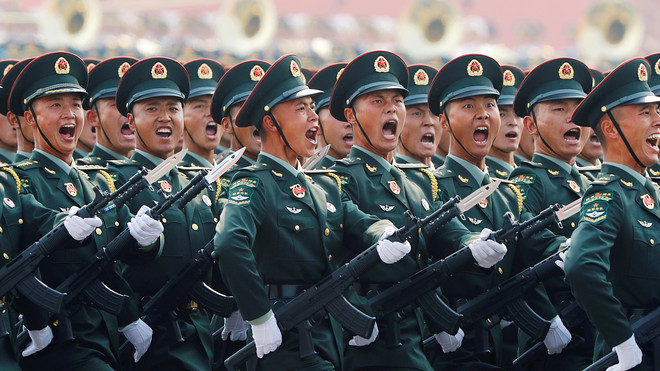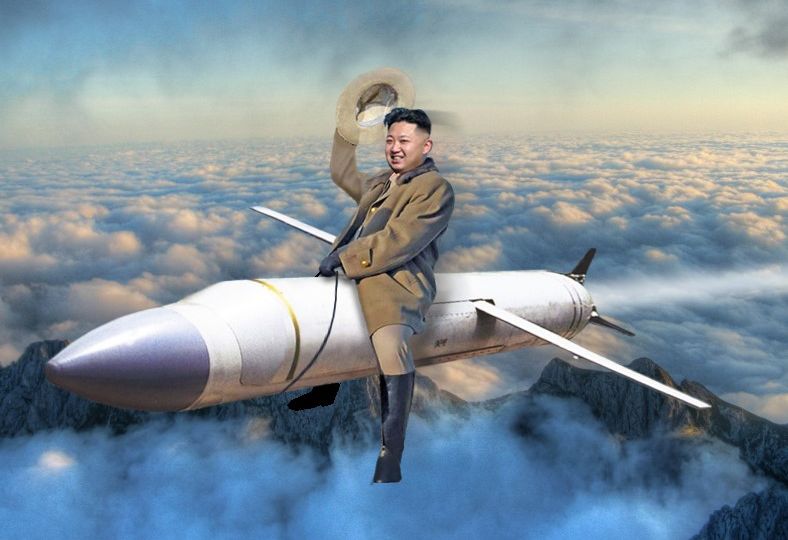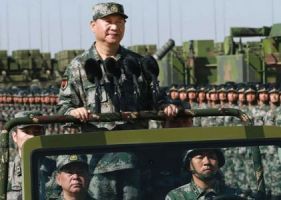Qoute: It is through the “community of common human destiny” that the CCP will finally secure what General Secretary Xi has called “the ultimate demise of capitalism and the ultimate victory of socialism,” and he has ordered CCP cadres to be faithful and to be prepared to make sacrifices to achieve this goal.
China: threat to world peace
What is EMP? An electromagnetic pulse (EMP) is a super-energetic radio wave that can destroy, damage or cause the malfunction of electronic systems by overloading their circuits. An EMP is harmless to people biologically, passing through their bodies without injury, like a radio wave. But by damaging the electronic systems that make modern society possible, an EMP can cause mass destruction of property and life. A single nuclear weapon detonated at high altitude over any country, or say, central Europe, will generate an electromagnetic pulse that can cause catastrophic damage across a radius of 2,000 to 3,000 kilometers to the critical infrastructure – electric power, telecommunications, transportation, banking and finance, food and water – that sustains modern civilization and the lives of millions of citizens. Because an EMP attack requires the detonation of a nuclear warhead at high altitude, no other nuclear effects – such as blast, thermal radiation or…
Transcript of Attorney General Barr’s Remarks on China Policy at the Gerald R. Ford Presidential Museum – Grand Rapids Michigan July 17, 2020 Thank you very much, Andrew for your very kind introduction and I’d like to say that I really appreciate the work that Andrew and Matt, our U.S. Attorneys for the Eastern and Western District of Michigan our doing here for the people of Michigan and all the law enforcement community from Michigan, that is here today. We really appreciate your work and as Andrew said, after my remarks they are going to put on a presentation of the China Initiative, which I think you’ll find very interesting, so if you have the time I urge you to stay for that. I would like to thank the leadership and staff of the Gerald R. Ford Presidential Museum — especially Elaine Didier — for hosting this event. I also…
China is at war with the Western world (whether the West knows it or not) through its destabilizing proxies such as North Korea, and even more directly through its theft of technology, its currency manipulations..
Chinese use of soft power to extend its global influence
The Chinese Communist Party (CCP) also uses ‘soft power’ to advance its influence and interests in foreign countries. ‘Soft power’ is an all-embracing term, covering propaganda, infiltration of foreign political parties and institutions, influence peddling, control of foreign media, the mobilization of overseas Chinese, and threats against dissidents.
Confucius Institutes
The Chinese government has established research centers and institutes in leading Western universities. From 2004 to 2014, it increased the number of foreign universities with Confucius Institutes (CIs) from one to 465 university campuses in 123 countries,
A Short History of China
To fully understand China’s motivations and intentions in today’s world, it is useful to study some Chinese history.
Since Mao Zedong defeated the Nationalists in 1949, the Communist Party of China has grown from a rag-tag army of rebels to the largest – and arguably the most disciplined – political organization on the planet, with some ninety million members.
The word hegemony is a useful word in describing Chines politics and ambitions. Hegemony means the domination or predominant influence of one state over state or region. An autocratic ruler can also be described as a hegemon, because, effectively, he is the state.
By IDR News Network Issue Net Edition | Date : 08 Jul , 2014 On July 8, 2013, the pro-PRC Chinese-language newspaper, Wenweipo, published an article titled “中國未來50年裡必打的六場戰爭 (Six Wars China Is Sure to Fight In the Next 50 Years)”. The anticipated six wars are all irredentist in purpose — the reclaiming of what Chinese believe to be national territories lost since Imperial China was defeated by the Brits in the Opium War of 1840-42. That defeat, in the view of Chinese nationalists, began China’s “Hundred Years of Humiliation.” (See Maria Hsia Chang,Return of the Dragon: China’s Wounded Nationalism. Westview, 2001. Below is the English translation of the article, from a Hong Kong blog, Midnight Express 2046. (The year 2046 is an allusion to what this blog believes will be the last year of Beijing’s “One County, Two Systems” formula for ruling Hong Kong, and “the last year of brilliance of Hong…
Modernisation in sheep’s clothing BEIJING The Economist THE good news, as suggested by the Pentagon’s latest annual report on China’s military power, is that Chinese leaders are still eager to avoid confrontation with other powers and focus on beefing up the economy. The bad news, it hints, is that this might not last. With its rapidly improving military capability (described by the Pentagon in great detail), China has the wherewithal to challenge the security status quo in the Pacific as well as potential motives to do so. The report is diplomatically couched—though from China’s perspective, not nearly enough. It hints at considerable unease about long-term trends in China’s military buildup. The last few months have seen some headline-grabbing aspects of this: an assertion by the Pentagon in December that China was making faster progress than expected on an aircraft-carrier-killing ballistic missile, the DF-21D; a new stealth fighter, the J-20, making its…


